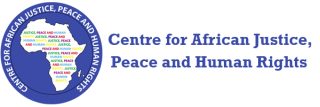International Law Blog
The International Law Blog stands as an inclusive platform, dedicated to delivering comprehensive updates on the ever-evolving landscape of International Law, encompassing progressive developments in International Criminal Law, International Human Rights Law, International Humanitarian Law and beyond.
Embracing the dynamic nature of International Law, it welcomes contributions from legal professionals and students alike at diverse stages of their careers, aiming at contributing to the discussion on the prosecution of gross violations of Human Rights in International Courts and Domestic Jurisdictions, within Africa and around the world extensively.
Please find our submission guidelines here.
Justice in Africa – Recent Developments From an International perspective
By: Dr. Sègnonna H. Adjolohoun
“Justice in Africa – Recent Developments From an International Perspective” examines the challenges and progress of justice systems in Africa, focusing on colonial legacies, judicial independence, alternatives to international justice, human rights enforcement, judicial conflicts, and emerging transnational crimes.
Download: Article ‘Justice in Africa – Recent Developments From an International Perspective’
Forced Marriage as a Crime Against Humanity under other Inhumane Acts in International Law
By: Aban Ador
Forced marriage, often overlooked, breaches international human rights law by replacing consent with coercion. This article examines its classification as a crime against humanity, particularly under the category of “other inhumane acts,” through pivotal cases and evolving jurisprudence.
Safeguarding Freedom of Expression: Upholding
Fundamental Human Rights in Zimbabwe
By: Rumbidzai Mudzongo
Freedom of expression in Zimbabwe remains under threat despite constitutional protections. This article explores ongoing restrictions under current leadership, highlighting their impact on media independence, human rights, and the 2023 general elections.
Deceased Accused: The Practice of International Tribunals vs the Pursuit of Justice
By: Vetira Rukoro
This article will first further contextualize the practice of international tribunals as it concerns accused persons dying before a judgment is made. It will then discuss this practice about the overarching pursuit of justice.
The Perpetration of Sextortion against Migrant Men: Analysis of the Experience of Survivors through the Lens of Masculinity.
Louise Bossière Abstract The ways in which migration and corruption can be interlinked are increasingly receiving attention among scholars. Not only can corruption contribute to the formation of migration aspirations, but it can also impact the migration process. Existing research on corruption during migration mostly focuses on monetary corruption. However,
International Day of Women and Girls in Science (2022)
By: Teresa Bettencourt In order to achieve full and equal access to and participation in Science for women and girls, and further achieve gender equality, the International Day of Women and Girls in Science has been celebrated since 2015. The need to mark this International Day arises from the gender
The Ongwen Judgement and its Significance for Dual Victim Perpetrator Status Before The International Criminal Court
By: Ella Riise MacLeod INTRODUCTION Dominic Ongwen’s trial before the International Criminal Court (ICC) has received major attention in the international arena due to the severity, complexity and scale of crimes committed in northern Uganda. The severity and scale of the crimes have been set out in the judgement
Child Soldiers and the Case of Dominic Ongwen
By Júlia Miragall Mas (Project Manager, Sexual Violence Team) And Kornelija Zilionyte (Legal Researcher, Sexual Violence Team) Introduction Many children are used as a weapon in various armed conflicts. These children are recruited, trained, often forced and tortured, or even hired voluntarily when feeling that there is no other
Fair Fashion at Its Finest: The Story of Nelly Otenyo Ibis
By: Katrina Sietina FAIR FASHION AT ITS FINEST: THE STORY OF NELLY OTENYO IBIS Nowadays, fair fashion has become somewhat of a distinguished term that is being used ambiguously by the fashion industry. Though, the question that arises is often regarded as to the essence of how fair fair
Girls’ Education in Nigeria
By Selma Nawrozzada GIRLS’ EDUCATION IN NIGERIA One of the most significant tools to empower girls within their family and community is education. Education is recognized as a fundamental human right. Gender inequality in education however remains a huge concern. Despite several national and international legal instruments such as
